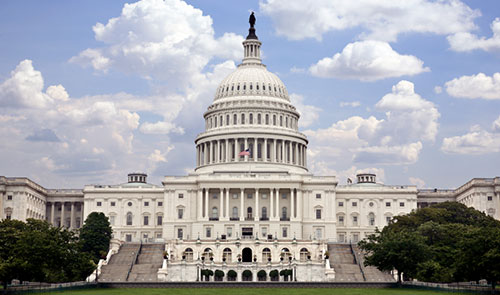eyeforpharma Philadelphia 2014
Make customer centricity work: smart pharma mindsets, models and technology that will seal commercial success
Congress Bill Targets $140bn Medicare Drug Rebate Savings
This week U.S democrats have introduced legislation into Congress that would require drug companies to provide rebates on prescription drugs used by people on both Medicare prescription drug (Part D) and Medicaid programmes, in the hope of saving the taxpayer over $140 billion.

The Medicare Drug Savings Act was introduced into the Senate by a group of 19 Democrats, and a companion bill sponsored by five Representatives is up for debate in the House. Proponents of the bill point to the fact that apart from Medicare Part D, all other large U.S purchasers of prescription drugs currently negotiate better prices for their beneficiaries.
Medicare Part D was created in 2006 to provide prescription drugs to ‘dual-eligibles,’ people who qualify for both Medicare and Medicaid, and relies on market competition between its private plans in order to drive down drug prices. Previously, dual-eligibles had had their drugs discounted by rebates attained through government negotiation. The sponsors of the bill claim that drug companies are being allowed to charge higher prices to those on Medicare Part D than anywhere else in the system, and the Congressional Budget Office estimates that reinstating rebates will save the taxpayer up to $141.2 billion over 10 years.
The democrats who introduced the bill said that the legislation would “correct excessive payments to drug companies, while also saving taxpayers and the federal government from footing the unnecessary cost,” adding that “Over the past 10 years, the 11 largest drug companies alone took in $711.4 billion in profits, including a 62% increase from 2003 to 2012.”
West Virginia Senator Jay Rockefeller, one of the sponsors of the Senate bill, claimed that, “for years, drug companies have received a taxpayer-funded windfall on their prescription drugs for people eligible for both Medicare and Medicaid, allowing them to charge higher prices than ever before for low-income seniors.” He went on to say that “this bill would make sure drug companies no longer receive this unnecessary and expensive payment. It would responsibly help to reduce the deficit, without impacting Medicare beneficiaries, by making sure drug companies don't get more than they're due.”
However, Senior Vice President at the Pharmaceutical Research and Manufacturers of America (PhRMA) Matthew Bennett countered that many of the large private plans that provide prescription drugs under Medicare Part D already negotiate rebates for their beneficiaries. He said that “In Medicare Part D, as in the broader market for prescription drugs, large and powerful private insurers and pharmacy benefit managers negotiate discounts and rebates. Some of these purchasers represent total patient populations equal in size to the population of some European G-8 countries, and also negotiate on behalf of private employers and the Federal Employee Health Benefit Program (FEHBP).”
Bennett also added that “Part D is working for seniors and taxpayers. It has greatly achieved seniors' access to medicines, held down premiums, achieved billions of dollars of savings on other Medicare costs by improving health, and cost hundreds of billions of dollars less than projected.” He contrasted this with the proposed legislation, which he said “would bring higher premiums and co-pays, more restricted access to medicines for seniors and Americans with disabilities, and diminished research on the next generation of medicines.”
eyeforpharma Philadelphia 2014
Make customer centricity work: smart pharma mindsets, models and technology that will seal commercial success
